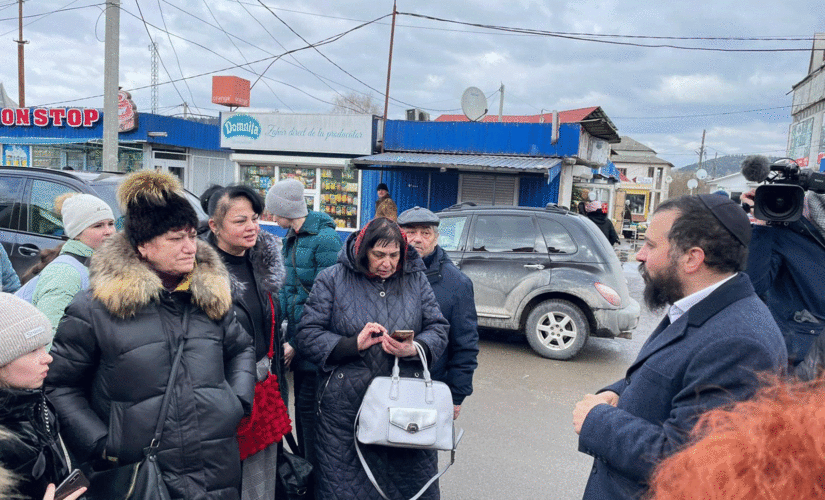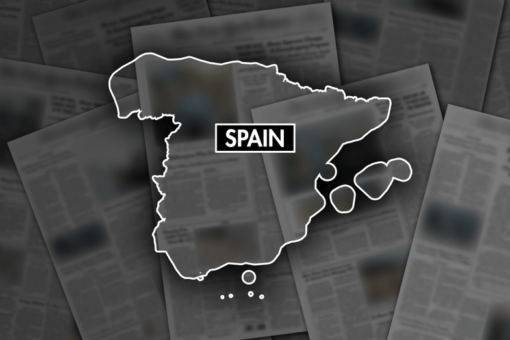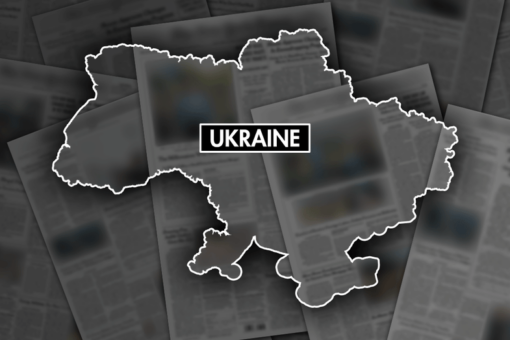NEWYou can now listen to Fox News articles!
Ukrainians from all walks of life are seeking shelter from the violence, and many Jewish charities have stepped up to help.
The endeavor comes amid the uproar over Russian President Vladimir Putin’s stated goal to “de-Nazify” the Ukraine’s government — a suggestion observers have scoffed at, especially since its president, Volodymyr Zelenskyy, is Jewish.
“We are people of faith, and it is of critical importance that we turn to God in prayer at this moment of upheaval for the world order,” said Rabbi Moshe Hauer, executive vice president of the Orthodox Union (OU), one of the largest Orthodox Jewish organizations in the United States. “We pray for peace, and specifically that God endow the leaders of the free world the courage and wisdom to act decisively to prevent further destruction.”
The OU has raised over $1 million so far, and its affiliated synagogues have raised millions more to help Ukrainians in their hour of need. The aid, Hauer explained, is going to Jewish and non-Jewish people alike.
“We have focused our support on efforts to evacuate people from Ukraine to neighboring countries, relocation to safer zones within the country when evacuation is impractical, support for refugees, and support for communities and individuals remaining in their homes and communities,” Hauer said. These include provision of transportation, security, shelter, food and clothing for thousands of people at costs that are extremely inflated due to wartime.
Following the Holocaust and, decades later, the breakup of the former Soviet Union, where organized religious activity was all but illegal, a Jewish renaissance in Ukraine took place. Yet with estimates of between 200,000 and 350,000 Jews in Ukraine, the nation’s population is dwindling quickly, as some 2.5 million Ukrainians so far have escaped to seek shelter in neighboring countries.
Rabbi Mendel Cohen praying in Moldova.
(Orthodox Union)
With millions of dollars so far raised by Jewish organizations, many groups in Ukraine and surrounding countries are working around the clock to systematize the help.
In a call organized by the OU with journalists on Wednesday, several charities and faith leaders spoke of their work and experiences.
Tzvi Sperber, the director of the charity JRoots, said his group mobilized quickly to help. “We thought of the lessons that were learned, and that we learned most from the Shoah [Holocaust] itself: We couldn’t sit and not do anything. So that’s why we got on planes and we started to mobilize as quickly as we could.”
His group managed to find a property in Krakov, Poland where they are housing around 100 people. In addition, he has also procured a hotel in the same city to help with the growing refugee crisis. “We can only do our small little part here. We’re helping Jews and non-Jews.”
“Unfortunately, in the last 13 days, our city is under siege,” said Rabbi Mendel Cohen. He’s the chief rabbi of Mariupol, the besieged city on the Sea of Azov. “The Jews of our community sit in shelters with no food, no water, no medicine, no phone, no internet. They cannot go out; the shops are empty. There is robbery in the streets and unfortunately, the Russians are playing psychological warfare with the people of Mariupol because they cannot take the city.”
GEN. KEANE ON ‘FOX & FRIENDS’: PUTIN READY TO ‘HAMMER’ KYIV, TRY TO FORCE ZELENSKYY TO CAPITULATE
Cohen has now managed to escape the carnage and is running things for his community on the Ukrainian border with Moldova. He spoke of how two families tried to get out and ended up getting shot and killed for their brave efforts.
“I see the pictures of the members of my community or setting my table for Shabbat [Sabbath.] We celebrate together Purim and Pesach, and I’m thinking: Are they alive? The kids who came to my kindergarten, the kids that learn in my school, where are they now? Do they have food? And I see the pictures, I see bodies in the streets of Mariupol [and] I’m asking myself again and again: Did I [do] the most I can?”
In one remarkable story, Rabbi Refael Kruskal, who runs an orphanage in Odesa, said he and his team were able to get out around 700 civilians out of the country into Moldova. He said his group included orphans, students, staff and families of alumni from the center. They’re now staying in hotels on the bordering country.
Ukrainians from all walks of life look to get shelter from the violence and many Jewish charities have stepped up to help.
(Orthodox Union)
“We’re working on getting also our psychological staff from Odesa,” Kruskal said. “The kids have been through a tremendous amount of trauma. As resilient as they are, they’ve been through a tremendous amount of trauma.”
He continued: “The most important things for us is to try and bring some kind of semblance of normality back to their lives, by starting school [and] by starting lessons.” The rabbi said it took them some 31 hours to get to Moldova and said they are sending free buses back as he vowed to do his best to help those left behind. “We’re working on many fronts in order to save and get out as many people as possible.”
Kharkiv’s Chief Rabbi Moshe Moskowitz described his first six days of the war before he and his wife were able to leave. He confirmed what millions have witnessed on their television screens.
“As every day goes, the bombing is getting stronger. Every day there was […] bombing in the center of the city, next to our house, next to the synagogue. There were tanks going,” he recounted.
CLICK HERE TO GET THE FOX NEWS APP
He and his wife, Miriam, said they worry about those left behind, especially the elderly, and spoke of the valiant volunteers helping to save people and bring them to rescue. They said for the past 32 years, they would worry about the spiritual and physical well-being of their community, but now they have to worry about the survival of the entire community and saving as many lives as possible.
“We feel that we are not alone, and everybody cares about what’s happening, [that] is extremely encouraging.”




